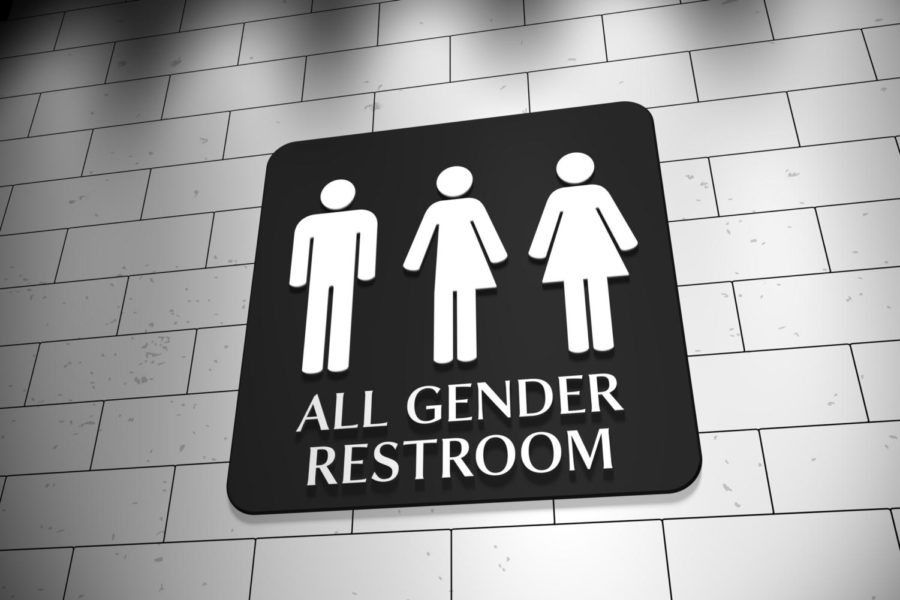Korges: Transgender lives after Gavin Grimm
The new bathroom bill introduced in the Iowa Senate is leading to concerns over the safety and discrimination against trans individuals.
March 18, 2017
Over break, on March 12, a rally took place at the Iowa State Capitol — the Rally To Save Transgender Lives (RSTL). The gathering stood as a testament to the myriad ways the past weeks have impacted all transgender lives, particularly those of youth and students.
Protections surrounding these lives have recently taken a hard hit. The Trump administration has rescinded many guidelines put in place by the Obama administration protecting transgender students, causing many to wait with baited breath for when a case would come before the Supreme Court. Gavin Grimm’s case seemed to be exactly the one many were looking for. However, this rescinding became the nail in the coffin. The Supreme Court decided not to take the case.
Grimm’s case, while now no longer scheduled to come before the Supreme Court, is not one people should be left unaware of. Grimm, a young transgender man in Virginia, wrote for the Times about using the nurse’s office bathroom, which “was far away from my classrooms that year,” and asking for permission to use the men’s bathroom, and being allowed to do so. Weeks would pass before “a public conversation about my genitals and restroom usage” was a topic for a school board meeting without Grimm’s notification, and the initial untroubled weeks faded into “sneers and whispers about me in the hallways.”
Grimm said, “I sat while my school board voted to banish me to retrofitted broom closets or the nurse’s restroom.” Grimm’s experiences, symptomatic of the humiliation many transgender students face, formed the basis of a case whose judgement was eagerly awaited. And as it rose toward the Supreme Court, the anticipation grew.
It was poised to be the first time the Supreme Court addressed transgender rights — a historical moment. A moment that will have to wait.
This issue will no doubt return to the Supreme Court in one form or another. But, as the New York Times states, “It will now be up to the United States Court of Appeals for the Fourth Circuit, in Richmond, Virginia, to answer whether Title IX protects the rights of Grimm and other transgender students.” The Supreme Court will “wait for a cleaner presentation of the issues in a different case.” They will not be waiting alone.
People — especially students — across the nation will be waiting as well. A recent study showed that “nearly 150,000 American teenagers from 13 to 17 years old — or 1 out of every 137 — would identify as transgender if survey takers asked.” It is estimated that there are 149,750 transgender teenagers and 1.4 million transgender adults in the United States. These numbers mean an extraordinary amount of people who could have benefited by having such a case taken before the Supreme Court will now be stuck waiting for the right one to come along.
They will have to advocate for themselves and may one day be the name making headlines as they challenge discrimination before the Supreme Court. But they will remain in limbo in the meantime — and that limbo is a dangerous place.
Rallies like the one at the Iowa State Capitol highlight a growing concern for the lives and well-being of transgender youth and children. Their concern, like Gavin Grimm’s court case, is emblematic of the impact a higher decision-making, or a lack thereof, can have on the lives of transgender people. Those experiencing the same treatment from peers as Grimm, consigned to nurses offices and stuck as witnesses to school board debates about their genitalia, should not have to stand up for themselves — they should be under the wing of larger protections. And they shouldn’t have to wait.







